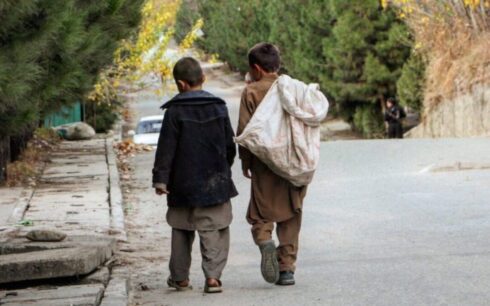ISLAMABAD — As Pakistan enforces the second phase of its mass deportation campaign targeting Afghan migrants, more than 800,000 individuals holding Afghan Citizen Cards (ACC) are at immediate risk of being expelled from the country. The deadline for voluntary return passed on April 10, and forced removals have already begun.
In the last 10 days alone, more than 12,000 Afghan nationals — most of them ACC holders — have reportedly been deported, according to Pakistani media reports.
But who are these individuals, and why are they being targeted now? What is the Afghan Citizen Card (ACC)?
The Afghan Citizen Card was introduced by the Pakistani government in 2017 as a stopgap measure to register undocumented Afghan migrants — particularly those who had entered the country after 2007 without legal documents such as visas or refugee status.
Roughly 880,000 ACCs were issued, granting recipients limited rights and a temporary reprieve from deportation. The program was meant to distinguish undocumented Afghans from those formally registered with the United Nations High Commissioner for Refugees (UNHCR) or holding legal residency.
According to Pakistani officials, the ACC served as a means of identification for those without legal documentation, a non-refugee registration tool, separate from UNHCR records, a precursor to eventual repatriation.
Why are ACC holders being deported now?
The second phase of Pakistan’s deportation plan comes amid rising domestic political pressure and security concerns, with officials alleging that undocumented migrants pose risks to national stability.
In late 2023, the government began its first phase of deportations, targeting those without any documentation. Now, the focus has shifted to ACC holders, despite the card’s original role as a form of temporary protection.
Officials say the measure is necessary to “restore law and order,” but rights groups and humanitarian agencies have condemned the policy as hasty and inhumane, particularly given conditions in Afghanistan under Taliban rule.
What makes ACC holders vulnerable?
While ACC holders were partially documented, they still lacked, legal residency status, refugee protections under international law, the right to remain in Pakistan long term.
Many ACC recipients include women and girls who fled Afghanistan after the Taliban banned female education and work, asylum seekers, journalists, and activists who fear persecution, and families separated from formal refugee registration programs.
“We girls sought refuge in Pakistan out of fear of the Taliban and to continue our education,” said Shahnaz Jasoor, an Afghan woman currently living in Pakistan. “If we are deported, we lose our rights to study, work — and face the risk of imprisonment.”





